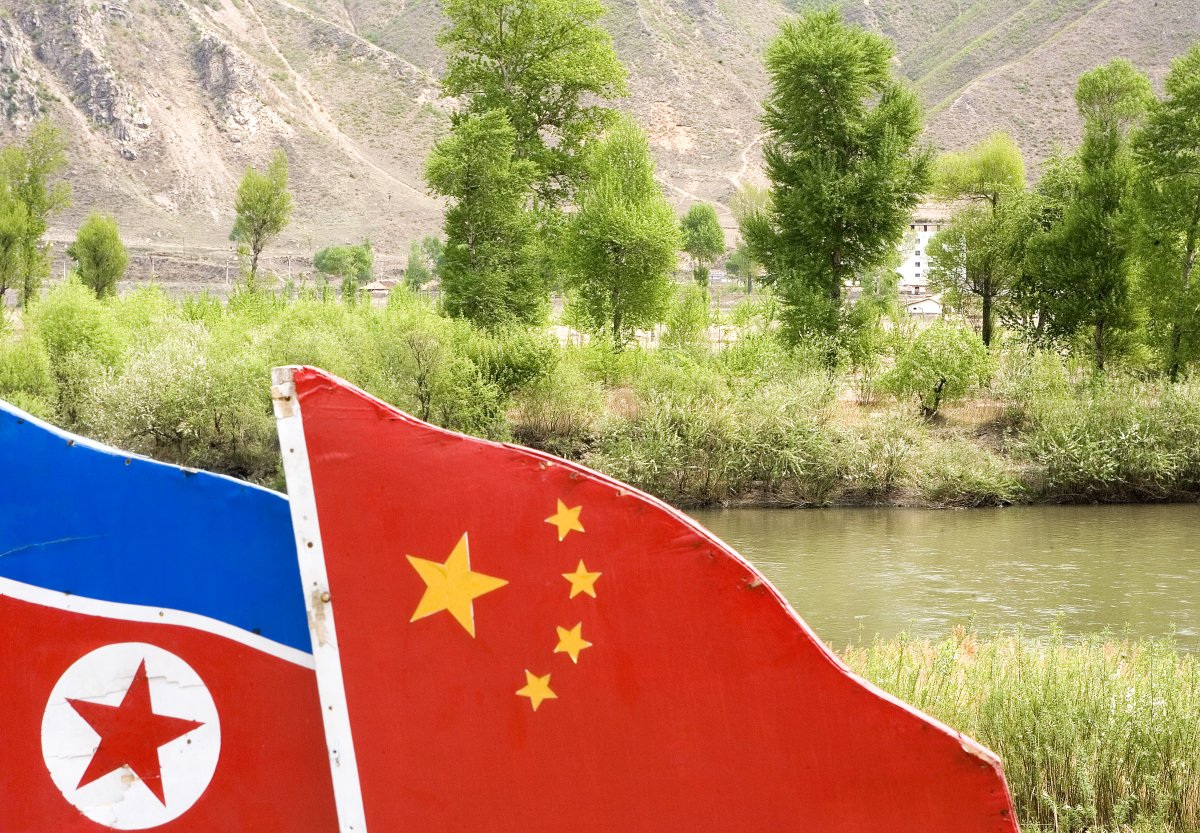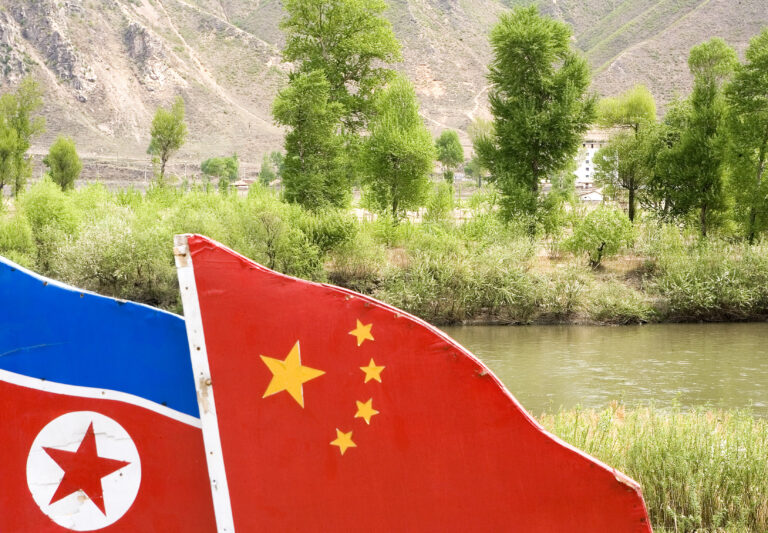China is set to enter talks with Russia and North Korea to secure greater access to northeast Asian rivers that empty into the Sea of Japan.
Increased Chinese commercial activity in the area is expected to strengthen China’s maritime capabilities, which one analyst said may also force Japan to beef up its own forces in the contested waters.
The 324-mile-long Tumen River runs from northeast China through North Korea and into Russia. It was ceded to the Russian Empire by China’s Qing Dynasty in the 1860s. Chinese ships must get permission from both neighboring countries to pass through China’s Jilin province and travel the final nine miles into the Sea of Japan.

Lucas Sifres/Getty Images
In a joint statement issued at their summit in Beijing last month, Russian President Vladimir Putin and Chinese President Xi Jinping said the two countries would hold a “constructive dialogue” on the waterway with North Korea.
Newsweek The Russian and Chinese foreign ministries, as well as the North Korean embassy in China, were asked for written comment.
As North Korea’s main ally, China wields great influence over the North and, increasingly, over Russia, which relies heavily on trade with China and payments in China’s currency, the yuan, amid tough international sanctions imposed since Moscow’s Feb. 24, 2022, invasion of Ukraine.
Expanding access to the Sea of Japan could put pressure on Japan, where the United States and China are in a territorial dispute over the Senkaku Islands, known to Beijing as the Diaoyu Islands.
Japan has been increasingly seeing incursions of increasingly well-armed China Coast Guard vessels into nearby waters around uninhabited islands it controls.
“If China’s coast guard vessels begin operating in the Sea of Japan, Japan will need to redirect its own coast guard vessels, which are currently monitoring the waters around the Senkaku Islands, in another direction,” said Masuo Chisako, a professor at Kyushu University’s Graduate School of Social and Cultural Studies. NikkeiThis will stretch Japan’s coast guard, which is struggling to monitor both waters, she added.
of Nikkei The article has sparked speculation on social media that Putin might cede or sell Russian territory to China, Garry Kasparov, president of the Renew Democracy Initiative, wrote on Wednesday on Twitter’s old nickname, X.
“For over 15 years, Putin has been cheaply selling off Russia’s resources, land and autonomy to China,” Kasparov wrote. “The Ukraine war and the resulting sanctions have now accelerated Putin’s need for Chinese political support, technology, money and weapons parts.”
Meanwhile, with China’s economy slowing, Kasparov argued that President Xi Jinping needs to raise resources at favorable prices to appease the Chinese people.
Patrick Cronin, chairman of the Hudson Institute’s Asia-Pacific Security Committee, dismissed the scenario as unlikely.
“Putin knows how to grab attention from U.S. policymakers and the capitals of America’s Asian allies, but selling land in Russia’s Far East is incredible and goes beyond even his enormous power within the Russian state,” Cronin said. Newsweek.
But Beijing has its eye on some parts of Russia’s Far East: Last year, China’s Ministry of Natural Resources mandated that new maps use the Chinese names for Vladivostok and seven other cities in the region.
The new map also shows Bolshoi Ussuriysky Island, known in China as Black Bear Island, fully as Chinese territory. The island, at the confluence of the Ussuri and Amur rivers, has been jointly owned by the two neighbors since a border agreement was signed between the two countries in 2008.
Rare knowledge
Newsweek is committed to challenging conventional wisdom, seeking common ground and finding connections.
Newsweek is committed to challenging conventional wisdom, seeking common ground and finding connections.

